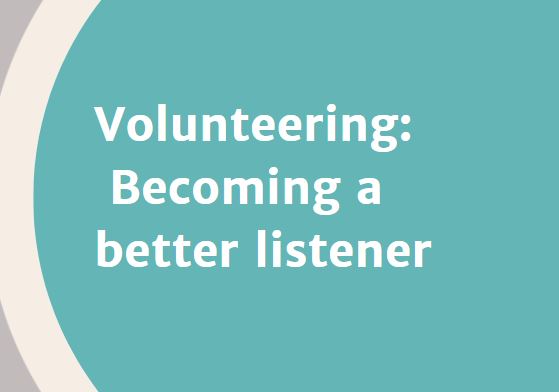Hospice is specialized care for people of any age, not just seniors. Volunteering to help hospice patients is the same: it’s for people of any age, and the reasons for doing it are different for every individual.
While many of our volunteers are retired or only working part-time, which gives them the opportunity to spend time with Centrica Care Navigators, others are in college, or have young children. They say it’s worth it to take time out of their busy schedules to be a volunteer.
“It’s rewarding for patients and for you,” says Ella, a student at Kalamazoo College and a Centrica Care Navigators volunteer. “You can help bring a positive light to their experience.”
Getting to know people
Ella, a pre-med student, says she needed some real-world experience with people receiving care, which prompted her to reach out to Centrica Care Navigators. While her time as a golf caddy has also made her familiar with older men and women, she says she simply likes getting to know people. That’s a large part of what she does as a volunteer.
Like many volunteers, Ella provides companionship, which is spending time with a patient on a regular basis. It might involve talking, or watching TV, or just sitting quietly together. But Ella remembers a patient who wanted to go for a walk.
“She was so happy to just walk in circles,” Ella says. “She was normally in bed, but once she was in a walker, she was moving.”
Ella has also recorded for our Story Catcher program, where patients talk about their lives and capture their thoughts as an audio file for their family members to listen to after their death.
“You meet someone for the first time, and within an hour you have a beautiful story you would never hear otherwise,” she says. “The patient said, ‘You made my day.’”
“Your presence matters”
Hrishikesh recently graduated from the University of Michigan, seeking a career in cancer research. Right now, he is devoting his time to volunteer work, including the Kalamazoo Loaves & Fishes food assistance organization. Here at Centrica Care Navigators, Hrishikesh has mainly provided companionship for patients.
“You would be shocked at how much your presence is appreciated,” he says. “Being alone in your last days is not something anyone should have to do.”
He says there’s a memorable moment for him each time he meets with the patient he’s assigned to now.
“She makes me promise her I will visit every week, even if we say almost nothing” during the visit, he says.
He does make that promise, and he looks forward to their appointments. In caring for patients, Hrishikesh has found ways he can identify with others.
“It’s great for clinical work if you are in the medical field,” he says. “You see not only what death is but how you face it. It builds character; as a volunteer, I have someone who is counting on me to visit.”
A “nonprofit” relationship
Aya moved to Battle Creek with her husband a few years ago after working as a nurse in Japan. Her 5-year-old is now in preschool, giving her time to get involved in her community.
“There are kind people in southwest Michigan, and I want to give back kindness,” Aya says.
As a Centrica Care Navigators volunteer, Aya isn’t using her nursing skills when she visits patients (we have a talented care team for that). Instead, like Ella and Hrishikesh, she provides companionship. She has talked with patients about their life stories and answered their questions about her own family.
Aya says she appreciates that companionship is a “nonprofit” relationship — neither the patient nor Aya herself needs anything from the other. They’re just in a room together, talking.
“They might not talk to a doctor, but they will talk to a friend,” she says.
Discover more about volunteering and all our services here on our website, join us on social media, or call us at 269.345.0273.



